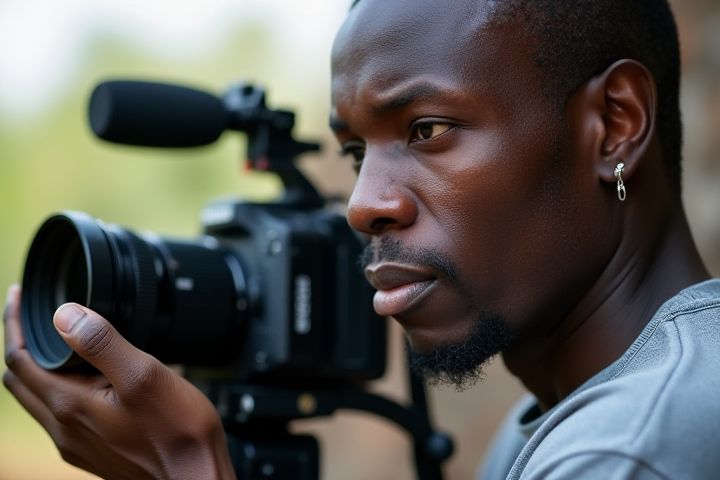
Journalism in Nigeria plays a crucial role in promoting democracy and transparency, addressing socio-political issues, and serving as a watchdog over government accountability. The media landscape is diverse, encompassing print, broadcast, and online platforms, including prominent newspapers like The Guardian and TV stations such as Channels TV. However, journalists in Nigeria often contend with challenges like government censorship, harassment, and a lack of adequate funding, which can hamper investigative reporting and press freedom. Despite these obstacles, grassroots movements and digital media have empowered citizen journalists, allowing for a broader range of voices and stories to emerge. Your engagement with reputable news sources can help support truthful reporting and foster a more informed public.
Press freedom challenges
Journalism in Nigeria faces significant challenges regarding press freedom, often impacted by government censorship and restrictive laws. Journalists frequently encounter threats, harassment, and violence while trying to report on issues such as corruption, human rights abuses, and political instability. The Nigerian Constitution guarantees freedom of expression; however, practical enforcement remains inconsistent, leading to a climate of fear within the media industry. Ensuring a safe environment for reporters is crucial for promoting transparency and accountability, which ultimately motivates informed public discourse in the nation.
Censorship issues
Journalism in Nigeria frequently confronts the challenge of censorship, which significantly impacts the freedom of expression and the dissemination of information. Government regulations and pressures from powerful entities often stifle journalists, leading to self-censorship and a constrained media landscape. Investigative reporting, crucial for transparency and accountability, is particularly hindered in such an environment, resulting in the public being deprived of vital information. Emphasizing journalistic integrity, many Nigerian reporters strive to navigate these obstacles while advocating for media freedom and the right to information.
Regulatory bodies
Journalism in Nigeria closely examines the influence of regulatory bodies like the National Broadcasting Commission (NBC) and the Nigerian Press Council (NPC) on media practices. These organizations are pivotal in establishing guidelines and standards that govern broadcasting and print journalism, ensuring compliance with national laws. The role of these regulatory bodies is critical in promoting journalistic integrity and accountability while also potentially stifling press freedom through restrictive policies. Understanding their impact enables you to appreciate the complexities faced by Nigerian journalists in the pursuit of truth and transparency.
Digital media rise
In Nigeria, the rise of digital media has revolutionized journalism, enabling real-time reporting and broader audience reach. This shift has facilitated the emergence of various online news platforms, social media channels, and mobile applications, empowering citizens to access information instantly. Traditional media outlets are increasingly adopting digital strategies to engage younger demographics, reflecting changing consumer behaviors. As a result, the Nigerian journalism landscape is transforming, driven by technological advancements and the demand for immediate, reliable news.
Investigative journalism
Investigative journalism in Nigeria plays a crucial role in promoting transparency and accountability within both the government and private sectors. It often encompasses in-depth research into corruption, human rights abuses, and other societal issues, providing the public with vital information that can drive change. Prominent organizations, such as the Premium Times Centre for Investigative Journalism, have been at the forefront of training journalists to enhance their skills in this area. By uncovering hidden truths, investigative journalists empower citizens with knowledge to challenge injustices and foster democracy in Nigeria.
Media ownership influence
Media ownership in Nigeria significantly shapes the landscape of journalism, often affecting editorial freedom and the diversity of viewpoints presented to the public. Prominent media conglomerates, such as the Nigerian Tribune and Channels TV, wield considerable influence, sometimes prioritizing the interests of their owners over the journalistic integrity. This influence can manifest in the selection of stories, framing of issues, and overall narrative within news coverage, impacting public perception and discourse. Understanding the implications of media ownership is crucial for assessing the quality and reliability of news in Nigeria, essential for informed citizenship and social accountability.
Security risks for journalists
In Nigeria, journalists face significant security risks, particularly when reporting on sensitive topics such as corruption, terrorism, and political unrest. The nation ranks among the most dangerous environments for media professionals, with threats ranging from harassment to physical violence and even murder. Numerous cases of abductions highlight the urgent need for enhanced safety measures and support systems for reporters. You can stay informed about these risks through advocacy groups that work tirelessly to protect press freedoms in Nigeria.
Ethical standards
Journalism in Nigeria emphasizes ethical standards to maintain credibility and public trust, particularly in a landscape marked by diverse political and social challenges. Journalists are expected to adhere to principles such as accuracy, impartiality, and accountability, ensuring that news reporting is not swayed by personal biases or external pressures. Ethical guidelines established by organizations like the Nigerian Union of Journalists (NUJ) serve as a framework to uphold journalistic integrity and protect the rights of both reporters and the public. By prioritizing these ethical standards, you contribute to the development of a more informed and democratic society.
Government propaganda
Journalism in Nigeria often grapples with the challenge of government propaganda, which can overshadow objective reporting. Many media outlets find themselves under pressure to align with state narratives, impacting the integrity of news coverage. This dynamic not only affects the trustworthiness of information but also limits public access to unbiased perspectives on crucial issues such as governance, human rights, and corruption. By fostering critical thinking and encouraging independent journalism, you can contribute to a more informed society that values transparency and accountability.
Citizen journalism impact
Citizen journalism in Nigeria has emerged as a powerful force, reshaping the media landscape by empowering ordinary citizens to report news and share stories. This phenomenon has fostered increased transparency and accountability, particularly in areas often overlooked by traditional media outlets. With the proliferation of smartphones and social media, you can access real-time updates on local issues, enhancing community engagement and advocacy. Furthermore, citizen journalism plays a crucial role in challenging government narratives, providing a platform for marginalized voices and diverse perspectives to be heard.
